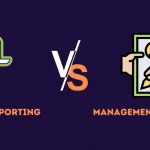Things to Know About Emergency Funds
Save one penny a day for a rainy day. – It simply means putting aside some amount of money that you can dip into later in case of an emergency. It can be used for car repairs, house repairs, an unexpected medical bill, paying for basics if you lose your job, and so much more.
Do you think you need an emergency fund? Well, of course, you do! If you can afford to save even a little something a month, it’s worth it. But it might not be a great idea if you don’t earn enough, or you have more urgent costs to take care of, or you have insurance policies for emergencies. But, here’s how you can do it:-
How Much Should You Save?
If money’s short, start small.
Once you have made up your mind to set up an emergency fund, the next question that comes to mind is – how much should you save? An emergency fund should be able to pay at least your most important bills for at least a couple of months. Three months of your wages or income is a good minimum amount, to begin with.
How to Save?
- Take the Easy Way
Be motivated – it’s a marathon, not a sprint!
The best way to set up an emergency fund is by saving money as soon as your salary arrives each month. The easiest way is by setting up a standing order for a certain amount. This can help you move any money you have left at the end of the month from your current account to your savings.
- Keep it in a Separate Account
Another great way is to put aside some money at the beginning of each month or as soon as your payroll arrives. The amount can be fixed each month, or it can vary depending upon your expenses. You can keep this amount in a separate account to make sure you don’t accidentally spend your savings.
- Earn Interest to Boost Your Balance
Choosing an account with high interest is another trick in the book to help your savings to quicker. For example, an instant access savings account lets you withdraw money whenever you need it. You could also go for a higher interest rate by opening a regular savings account that pays you interest each month.
- Pay in Extra if You Can
Just like sprinkles, the more the better – Paying in regular is good, but chipping in some extra money is incredible.
You can boost your savings if you receive some extra money from a bonus at work, a tax refund, an inheritance, or maybe you paid off a loan and are left with more money each month. You could put this money into your savings and build up your emergency fund quicker.
Wrapping Up!
An emergency fund can help you build a solid foundation for your financial life.
Start building your emergency fund as a high-priority piece of your overall financial plan. Don’t just plan for emergencies, plan long-term. Lastly, make sure you keep it separate from other accounts or savings, is low-risk, and is easily accessible.


